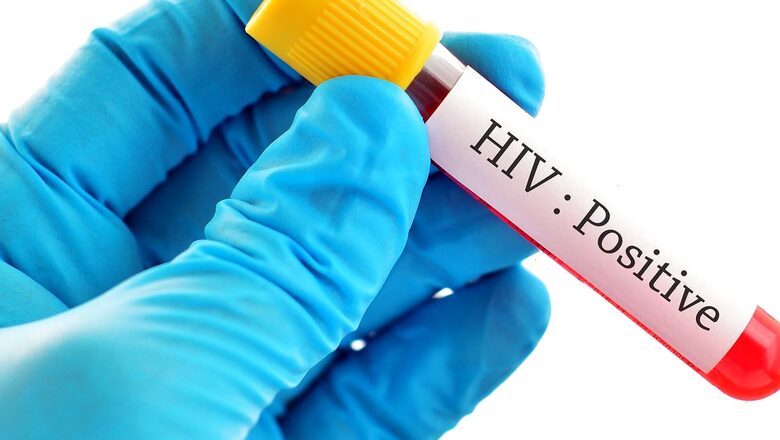
views
Many misinformation and misconceptions surround the human immunodeficiency virus, otherwise known as HIV. But first, let us understand the difference between HIV and Aids:
HIV is a virus that attacks your body’s immune system. When not properly treated or managed, HIV can develop into acquired immunodeficiency syndrome (AIDS) if left untreated and results in fatality. “This virus destroys cells in your immune system called CD4 T cells, which are white blood cells that help your body fight disease and infection. People with AIDS mostly survive about three years if they do not receive treatment. Natural immune boosters support HIV patients,” says Kamayani Naresh, Health Expert & Founder, Zyropathy.
The progression of HIV to AIDS can take between 5 and 10 years. AIDS is the most severe and final stage of an HIV infection. The body struggles to combat infections and disease invasion as the virus has destroyed many white blood cells that play a crucial role in the immune system and help fight infection. Symptoms include persistent fevers, diarrhea, and headaches; severe fatigue; significant weight loss; opportunistic diseases like pneumonia and tuberculosis, whereas AIDS is eventually fatal.
People with HIV can prevent AIDS by incorporating healthy behaviours that strengthen their immune systems. Keeping your immune system strong is vital when you have HIV, as it can reduce your risk of developing AIDS.
Strong Immune System Prevents HIV from Becoming AIDS
If living with HIV, keeping your immune system strong can significantly reduce your risk for AIDS. Therefore, you may not be able to change your lifestyle overnight. However, the sooner you make positive changes, the faster you can boost your immunity to becoming stronger, healthier, and more energetic. Your healthcare team will work closely with you to ensure you adopt healthy practices that would keep you healthy and strong. Naresh shares certain behaviours that need to be incorporated in order to keep healthy:
Devour Only Highly Nutritious Foods
Healthy foods help keep the immune system strong and reduce the risk of getting other diseases like cancer. Whole foods like fruits, vegetables, poultry, fish, nuts, and seeds offer a complete array of antioxidants, vitamins and other nutrients that naturally boosts immunity.
Also Read: Must Visit This Art and Cultural Pop Up In Delhi on The Weekend
Avoid processed foods in boxes, cans, and packages, including frozen dinners, pastries, and canned food, as these contain a vast amount of sugar and sodium, along with many other preservatives and non-food chemicals that drive inflammation and weaken the immune system.
Protein at Every Meal
Protein helps the body create new cells and repair damage. It also maintains the health of the cells, including the T cells in the immune system. Consider eating a source of protein at every meal. Protein sources include eggs, Greek yogurt, beans, meats, fish, and poultry. Protein supplements are also a great source to cover daily deficiencies.
Nutritional Supplements
The daily amount of vitamins and minerals a human body needs can’t be met with food alone. For instance, people who are vegan or lack access to quality, affordable fish may miss out on vital omega-3 fatty acids and need fish oil supplements to boost their intake. In addition, your healthcare team can suggest vitamins your body needs to fight HIV and AIDS, such as vitamin D.
Regular Exercise
Exercise is a natural immune system booster. It can increase your strength, endurance, and energy and improve your mood to reduce depression, stress, and anxiety naturally. The more you exercise, the stronger you’ll become and the better you’ll feel.
Get Plenty of Quality Sleep
Quality sleep is essential for everyone but is especially important for people with HIV. Your body repairs and heals itself while you sleep. Sleeping well throughout the night can be challenging for people with HIV. Anxiety and worry about having HIV can disrupt sleep, as can certain medications used to treat HIV.
Manage and Reduce Stress
The struggle with HIV and the thought of possibly developing it into AIDS is very stressful. Chronic stress weakens the immune system and makes one more vulnerable to AIDS and other infections. Stress can also affect your ability to eat and sleep—which are essential to your health when fighting HIV. If you suffer from stress, find new ways to manage it effectively. For example, get into yoga or meditation; spend quality time with friends and relatives, including your pets. Also, try to recognize and eliminate stressors from your life. Stress reduction can help ease the burdens associated with having HIV.
Stop Alcohol and Smoking
Alcohol weakens the immune system even more when you have HIV. It can also worsen your symptoms and make you feel weak. In addition, it can interfere with the medications you are taking to treat HIV. Finally, it can affect your decision-making ability and judgment and lead to risky behaviours like unsafe sex. As a result, some health professionals recommend drinking alcohol in moderation, while others recommend avoiding alcohol at all costs.
Smoking increases the risk of several serious diseases. For example, researches prove that people with HIV who smoke are more likely to get cancer, heart disease, and bacterial pneumonia than a non-smoker. It adds that smokers with HIV also respond poorly to HIV treatment, are more likely to get AIDS, and have shorter lifespans. Cessation on smoking is an absolute must. Medications, nicotine replacement and support groups are effective ways that may help you to stop smoking.
Read all the Latest Lifestyle News here




















Comments
0 comment